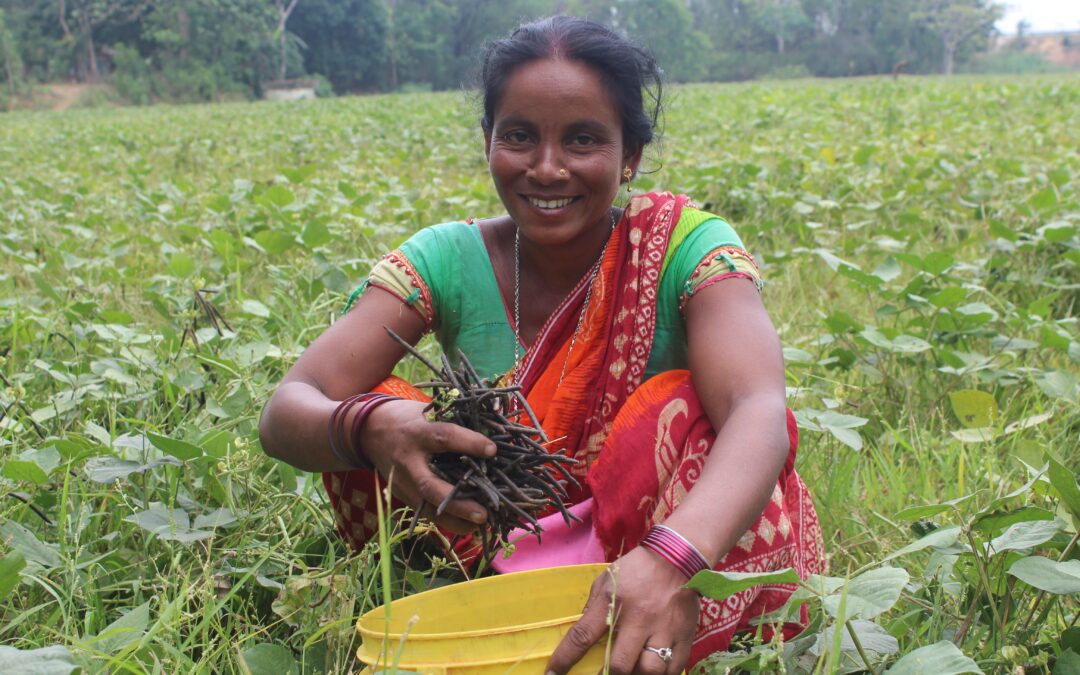Introduction
In the face of climate change, depleting natural resources, and food security challenges, sustainable agriculture has become crucial for ensuring a brighter and equitable future. Sustainable Integrated Farming System (SIFS) is vital for addressing the challenges of modern agriculture, climate change, and food security. This holistic approach combines diverse elements to create resilient and eco-friendly farming practices. Natural farming, also known as zero-budget farming or organic farming, holds significant importance in today’s world. It is a farming approach that seeks to work in harmony with nature, without the use of synthetic chemicals or external inputs. Instead, it relies on traditional and ecological principles to promote sustainable agriculture. The Centre for World Solidarity (CWS), a civil society movement inspired by Gandhian principles, is actively working to empower communities and promote sustainable farming practices. CWS’s impactful initiatives, including Nutrition Sensitive Integrated Farming Systems (NSIFS), natural farming promotion, improved market access through farmer producer companies, and sustainable resource management.
1. Nutrition Sensitive Integrated Farming System (NSIFS)
This holistic approach combines crops with various types of plants, animals, birds, fish, and other aquatic flora and fauna in a mutually beneficial manner. The waste of one element becomes a resource for another, promoting sustainability and efficiency in agricultural practices. Through capacity-building initiatives, CWS has trained over 1500 farmers across different regions on NSIFS. Farmers are encouraged to adopt a diverse range of crops and livestock, fostering ecological balance and enhancing overall farm productivity.
2. Sustainable Agriculture
In Rajnagar block, Jharkhand, CWS is driving change through sustainable farming practices and natural resource management. Farmers’ groups in 9 villages are actively participating, with 136 members (83 male, 53 female) receiving training on integrated farming and managing common facilities. They have initiated farm planning, pond rejuvenation, agroforestry, and other techniques to combat soil erosion and conserve water. Through such efforts, they aim to cultivate leguminous crops on treated land and have rejuvenated 6 ponds for water conservation. Repaired wells in Phuljori and Hanumatbera villages provide continuous access to safe drinking water and household needs.
3. Empowering Farmers for Natural Farming & Improved Market Access through Farmer Producer Company (Ajivika)
CWS recognizes the importance of eco-friendly practices and has been actively encouraging farmers to adopt non-chemical methods for sustainable agriculture. One such method is Zero Budget Natural Farming (ZBNF), which has gained traction among farmers. Through training programs, 93 farmers have learned and implemented environmentally friendly techniques. In Guntakal block, Andhra Pradesh, 49 farmers from 5 villages have successfully adopted ZBNF methods for groundnut cultivation. Training and demonstrations on the preparation and use of bio-pesticides and herbal tonics have further empowered farmers to maintain ecological balance in their fields. Additionally, they have been trained in preparing “jeevamrutham,” a natural and nutrient-rich soil enhancer.
“Bhoomi Ka” is a network of farmers, ecopreneurs, and experts dedicated to promote Clean, Green and Fair markets for smallholder farmers and business.
Under the project Bhoomi Ka, CWS has facilitated the formation of a Farmers Producer Company (Ajivika Producer Company) in Rajnagar, Jharkhand. Employing 10 women farmers from Bankati Village, the company manages daily tasks, including cleaning, grading, packing, and labeling grains. With 676 registered farmers from different districts, the Farmers Producer Company sells grains, vegetables, fruits, millets, seeds, and fertilizers through various channels, generating substantial revenue. CWS has also supported 3 processing/value-adding centers that adhere to FSSAI guidelines, ensuring product quality and safety.
4. Sustainable Resource Management
Integrated farming systems offer a holistic and sustainable approach to resource management in agriculture. By integrating diverse farming components, efficiently recycling nutrients, optimizing water usage, and reducing chemical dependency, IFS enhances farm productivity while safeguarding the environment. This system is not only ecologically beneficial but also economically viable, as it reduces input costs and enhances farm resilience to external challenges like climate change. As we continue to face global challenges in food production and environmental preservation, embracing integrated farming systems can pave the way for a more sustainable and resilient future in agriculture.
Initiatives like farm bunding, pond rejuvenation, and agroforestry development have been undertaken to improve water conservation and reduce soil erosion. Through farm bunding, soil erosion has been minimized, and soil moisture conserved, benefiting 29 potential farmers on 24 hectares of land. The rejuvenation of 6 ponds and repair of 2 village wells have significantly improved water accessibility for the communities.
Conclusion
CWS’s dedication to promoting sustainable agriculture, empowering farmers, and preserving the environment sets a commendable example. Through initiatives like NSIFS, natural farming promotion, improved market access through farmer producer companies, and sustainable resource management, CWS is paving the way for a greener and more prosperous future. By supporting eco-friendly practices and empowering farmers, we can ensure food security, conserve natural resources, and build a sustainable future for generations to come. Together, let us rally behind and promote sustainable agriculture for the betterment of our planet and its people. Let’s sow the seeds of change and harvest a brighter, greener future for all!!

